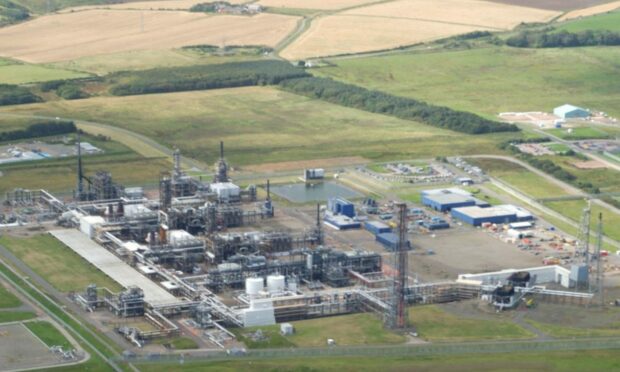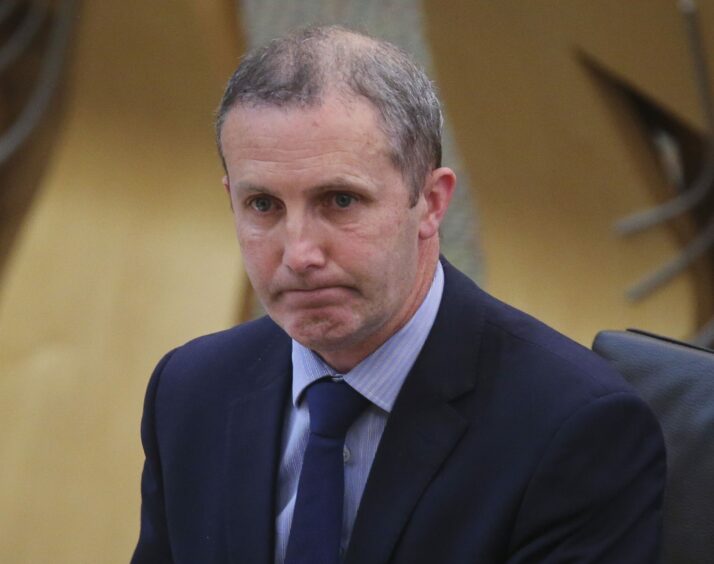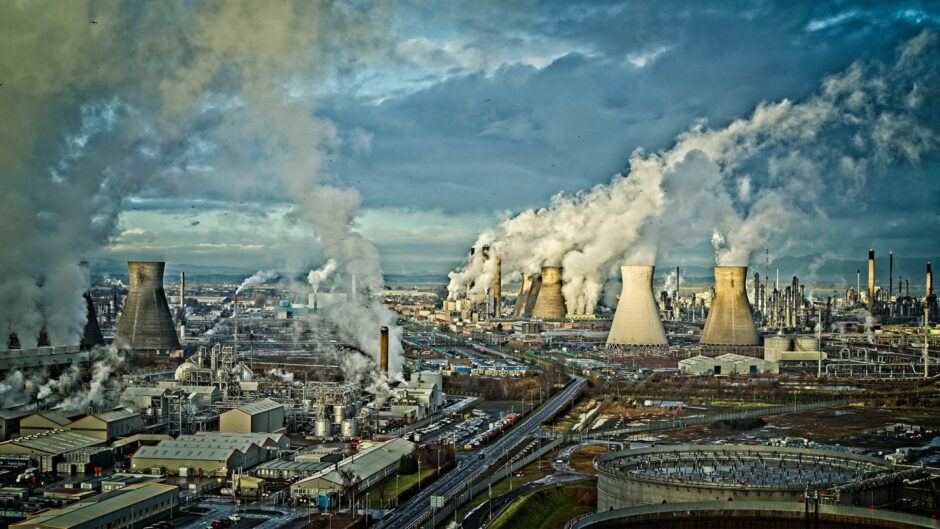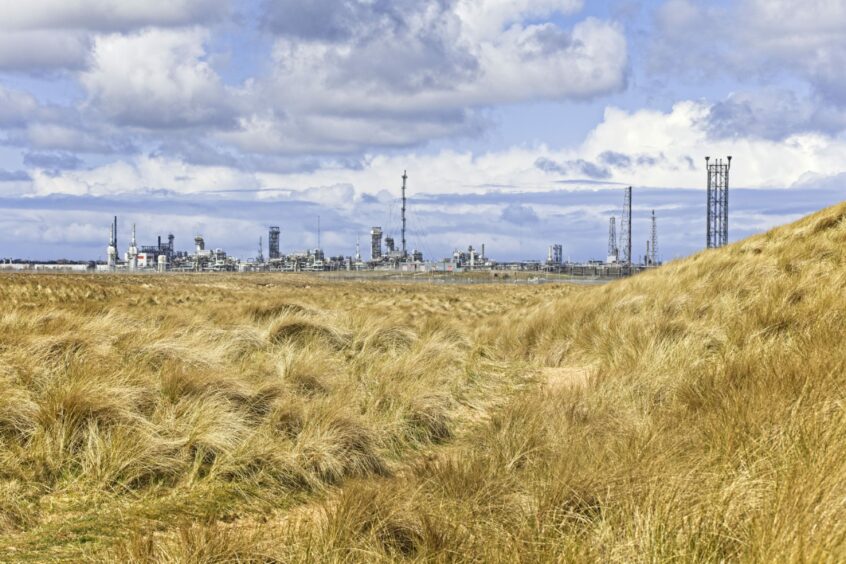The Scottish Government has put £80 million on the table to accelerate a carbon capture and storage project that could create thousands of jobs in the north-east – and called on the UK government to back it.
Energy Secretary Michael Matheson said Holyrood “stands ready” to accelerate the development of the Scottish Cluster, a group of decarbonisation projects focused on Peterhead Power station, after it missed out on UK Government funding last year.
Scotland’s energy sector was left dumfounded in October when the Scottish Cluster was not one of the carbon capture and storage (CCS) initiatives selected for the first phase of a £1 billion UK Government funding scheme.
It prompted calls for ministers to reconsider their decision amid fears that without the scheme, which has Aberdeenshire’s Acorn CCS project at its core, Scotland will not be able to hit its net zero goals.
Mr Matheson met virtually with Greg Hands, the UK’s energy minister, on Thursday to lay out the funding offer.
It is hoped the cash, which would come for the emerging energy technologies fund, will encourage Westminster to bump the Scottish Cluster project up to ‘track-1 status’.
Three for the price of two
The Scottish energy minister said the UK government’s decision not to back the Scottish Cluster had been a “serious mistake” but admitted the Scottish government “cannot simply go it alone” to fund the scheme.
He said: “The UK Government’s decision not to award the Scottish Cluster clear and definitive track-1 status is a serious mistake which shows a clear lack of ambition and leadership on climate change.
“Delaying or halting the deployment of the Scottish Cluster has serious consequences, including jeopardising the industrial decarbonisation of Scotland and our just transition to net zero, creating an un-level playing field across the UK, and endangering Scottish and UK-wide net zero targets.
“That is why I am announcing today that we stand ready with up to £80m of funding to help the Scottish Cluster continue and accelerate the deployment of carbon capture technology.
“Unfortunately we do not hold all the necessary legislative and regulatory levers needed to support the Scottish Cluster, as they are not devolved. We cannot simply go it alone with our funding.
“Our offer of support is therefore made on the basis that the Scottish Cluster is given certainty of its due status within the UK sequencing process, and I once again urge the UK Government to provide this certainty for the benefit of our energy sector and for our ability to deliver a just transition to net zero.”
The Department for Business, Energy and Industrial Strategy has been contacted for comment.
A ‘catastrophic blow’
Mr Hands was charged with dealing the north-east a “catastrophic blow” when he revealed that the Scottish Cluster had only made the reserve list.
A spokeswoman for the Scottish Cluster said being a “reserve cluster” meant it was “committed to working with the UK and Scottish Government to deliver a world leading cluster of decarbonisation projects to support the just transition across north east Scotland, into the central belt and the UK”.
The group behind the project insisted it will “play a key role in meeting the UK’s objectives to deploy at least two clusters by the mid-2020s, and four clusters by 2030 at the latest.”
SNP politicians accused Conservative ministers of delivering “let down after let down”, while senior industry figures questioned the rationale of the decision.
The East Coast Cluster and HyNet were the two chosen to receive support.
The Scottish Cluster’s omission was particularly sore given a similar competition – that Peterhead Power Station was a front-runner in – was scrapped by the UK Government in 2015.
Trade body Oil and Gas UK (OGUK) highlighted that the development of CCS and hydrogen were two focus areas of the so-called North Sea Transition Deal signed by the UK Government and OGUK in March 2021.
OGUK sustainability director Mike Tholen said: “In accelerating these carbon capture projects, the UK is laying a key part of the infrastructure for its net zero future.
“It is a crucial first step but scale is essential if the UK is to make itself carbon neutral by 2050.
“We look forward to Acorn and other carbon capture projects joining Hynet, and the East Coast cluster in ensuring we can generate sufficient energy to keep the country functioning, with homes heated and schools and hospitals powered, but in a way that helps us meet our climate goals and Paris Agreement commitments.”
Acorn is based at the St Fergus gas plant near Peterhead and is planning to use existing oil and gas infrastructure to store carbon emissions under the North Sea.
Several large emitters, including Grangemouth and Mossmorran, have already signalled their intention to use the technology.
Acorn is expected to deploy a range of low carbon technologies including hydrogen production and direct air capture (Dac). Backers have predicted the schemes could create over 20,000 jobs, including thousands of low carbon roles that could be filled by oil and gas workers as part of a just transition.



